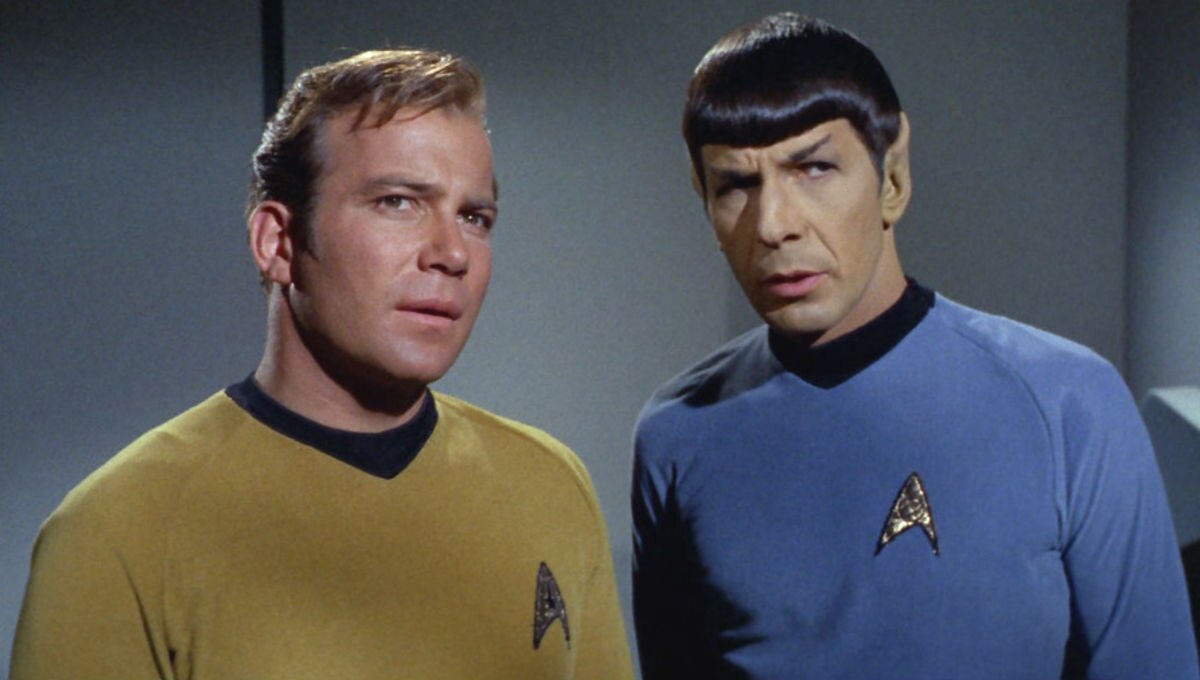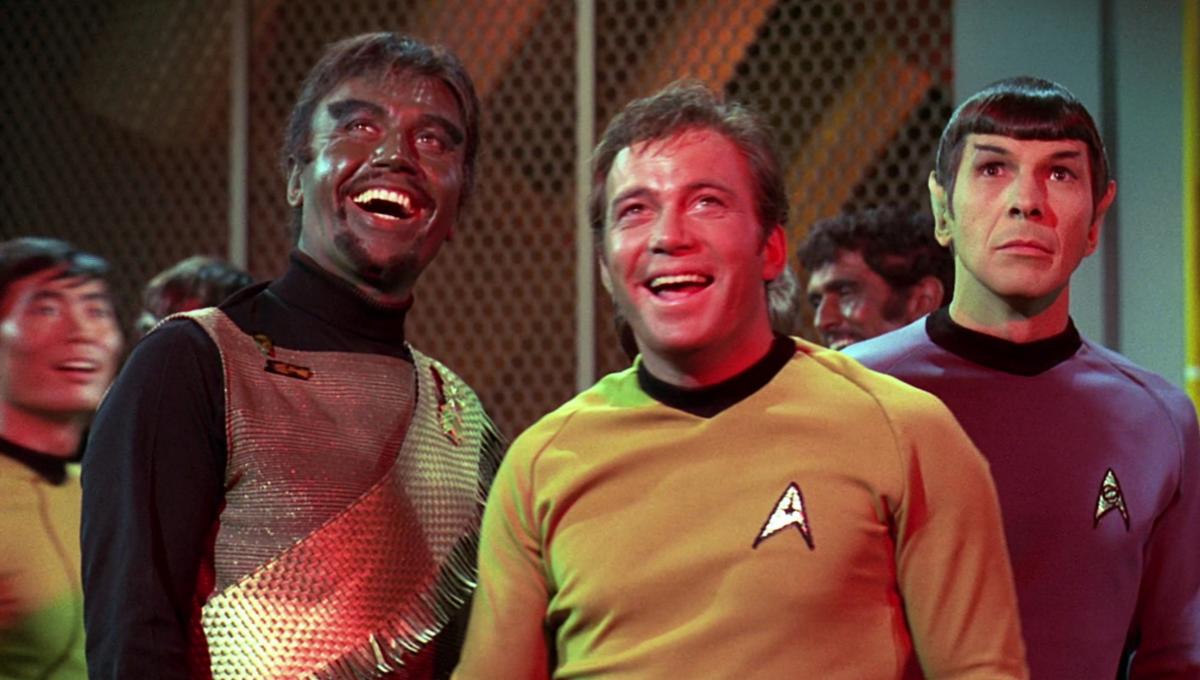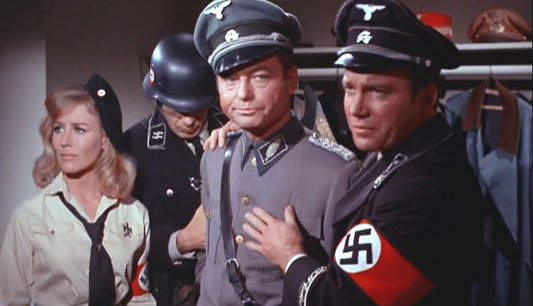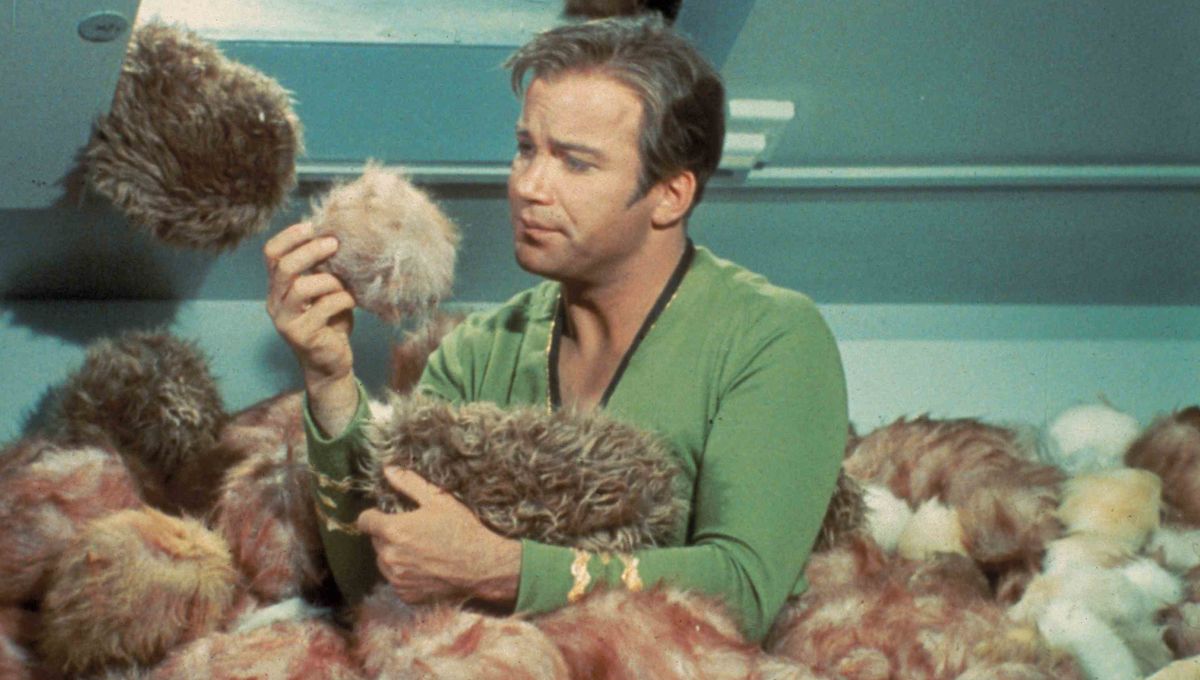Writing Tips from Classic Star Trek
A few months ago I finally finished watching through the classic Star Trek series. (I haven't even started on any of the movies with the original cast, but that's not what we're talking about today.) I really enjoyed the show, as over-the-top and cringe-worthy as it could be sometimes. And I think there a lot of good lessons we as writers can learn from it (if not as human beings). So get your tricorders and set your phasers to stun. We're going to deep space.
1. Establish your characters
Even if you don't watch Star Trek, you know how Captain Kirk is a great leader and a slight flirt. Everyone knows that Spock is smart and Bones is an excellent, if sarcastic doctor. Star Trek has so firmly established these characters that everyone knows them and how they will react in any given situation.
You should strive to have characters this fleshed out. It helps readers connect with them better, especially over a series. You can do this by creating a good role for them, then expanding it from there, adding quirks, backstories, and flaws.
2. Under-reacting is probably better
One of the biggest jokes about the original series is how much everyone over-reacts to things. Even the music gets extremely excited over tiny little events. But we can forgive them, since it was a different era of TV.
This won't be as big of a problem in a novel as it is on screen, but you should still avoid having your characters over-react to things. There's a lot to be said for subtlety. This also applies to the type of dialog tags you use. Said is perfectly fine most of the time, as opposed to things like shouted, screamed, gasped, and giggled.
3. Add a strong theme
Many of Star Trek's episodes make a strong point on various social issues, whether that's racial discrimination, nuclear warfare, or violence. I've always admired how they never flinched from tackling tough topics, instead facing them head on. Some of their best episodes have a great theme included.
If you want to talk about a difficult subject with your writing and you feel like you can do it well, then I say go for it. Pour all of your thoughts out onto that page. Sure, some people may not like it, but it's not their story to tell. Even if it's not a personal subject, I see nothing wrong with adding a theme about something you feel strongly on.
4. No deus ex machina
Star Trek is also one of those shows where (almost) no matter what happened during the episode, everything is back to normal and we crack a few jokes at the end before rolling the credits. And sometimes getting the characters there has been something awful convenient. Something drastic will happen at the end, or the villain will be revealed to be not such a bad guy, or Bones will find the cure just in time.
Those are the sorts of things you want to avoid writing. (Except, say, in a satire novel.) If your villain or circumstances are too much for the hero to defeat without something helping him out of the blue, maybe you should back it off a bit. Everything doesn't always have to be as big and bad as possible. The little things the villain does can be even more painful than the terrible ones sometimes.
5. Push characters out of their comfort zone
Oh look, a new planet. Let's send most of the main crew (including the captain?) down to investigate. And now the transporters aren't working. Or the phasers or the communicators. And now we're separated and in a fight to death for insulting someone. If there's one thing Star Trek knows how to do, it's send its characters out of the comfort zone and into new and unusual situations all the time. (I'm still a personal fan of gangster Spock.)
How can you take your hero out of his comfort zone? You could take his gadgets, his suit, his familiar setting, his left hand. You should always be looking for ways to make your hero uncomfortable, because as Cassey Ho says, those moments where you're suffering is where you grow.
6. Create a strong world
Do your best to establish a strong world, no matter what kind it is. Make it feel real, or believable, or whatever your story needs. Make things that will stick in your reader's head and make them wish that they had. Show us the way the future could be, even if its not always perfect.
Have you watched classic Star Trek? Do you have a favorite episode or character? Tell me in the comments.
Suggested Posts:
Writing Lessons from Indiana Jones
Writing Lessons from the Ocean's Movies












STAR TREK!!! I've only seen the first episode of the classic series, and two of the newer ones-but I LOVE IT. <33 These are great tips though. XD
ReplyDeleteCool! I just started Next Generation myself. Glad you liked it! :)
Delete